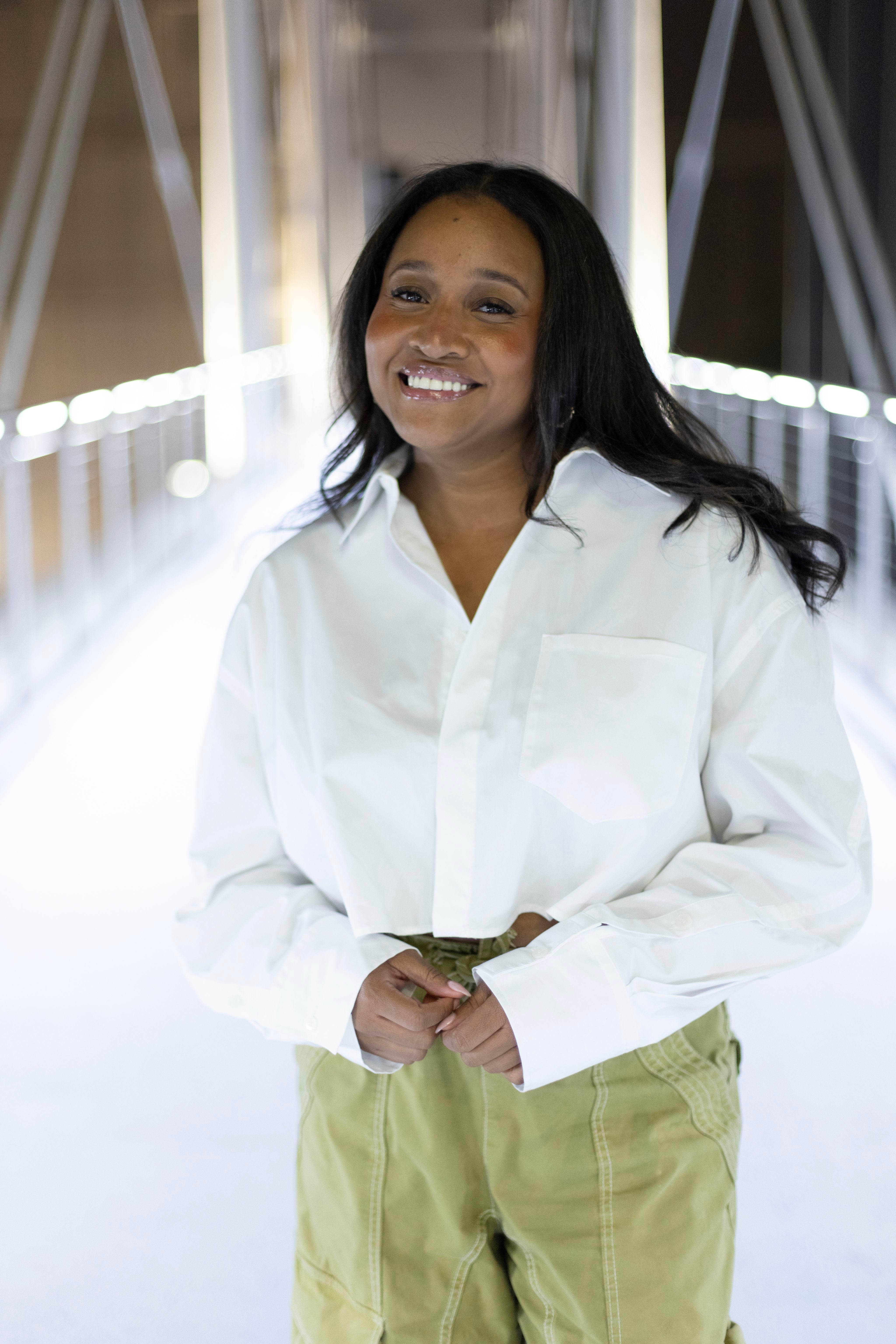The Black Beauty Effect
'The Black Beauty Effect'
Moody College hosts screening and discussion of Netflix docuseries that explores Black beauty
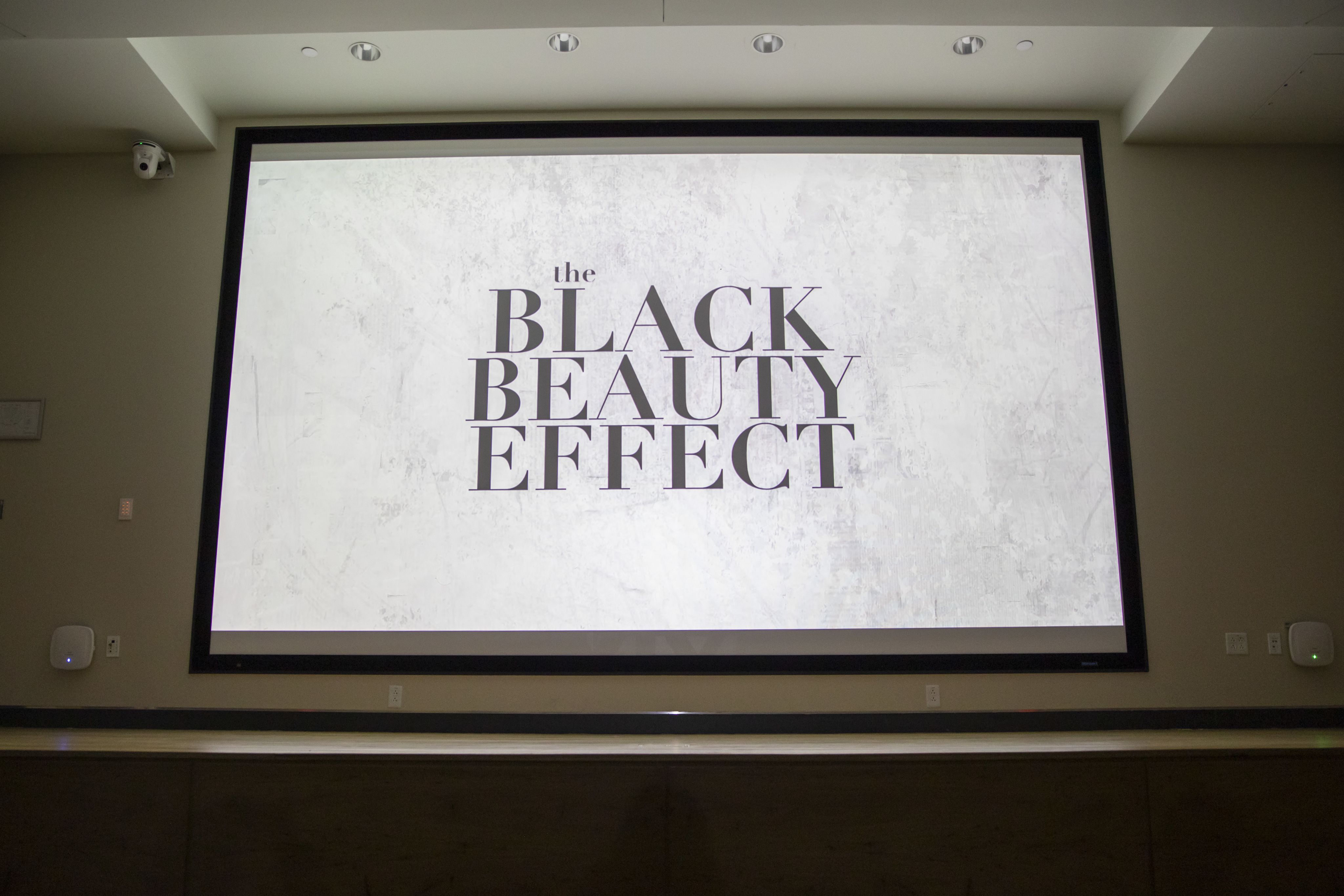
Actress Andrea Lewis spent her fair share of time hearing people’s two cents about her looks while growing up on the sets of “Cadet Kelly” and “Degrassi: The Next Generation.” She would frequently be met with confusion or discomfort in hair and makeup trailers from stylists who didn’t know how to work with her natural curly hair, and her mother would often have to help her get ready before filming.
Lewis saw the disparity between how little imagination the media had in highlighting Black women and all the creative ways her friends and family showed their beauty. She knew she wanted to change that.
“I always wanted something that expressed Black beauty the way I saw it,” Lewis said. “Which was positive and showed these game-changers that were doing stuff in spite of those people that weren’t making space.”
Lewis spent years carrying this idea with her until she met the founder of FaceForward Productions, CJ Faison, and he saw her vision. Together, they created the Netflix docuseries “The Black Beauty Effect,” which is out now on Netflix.
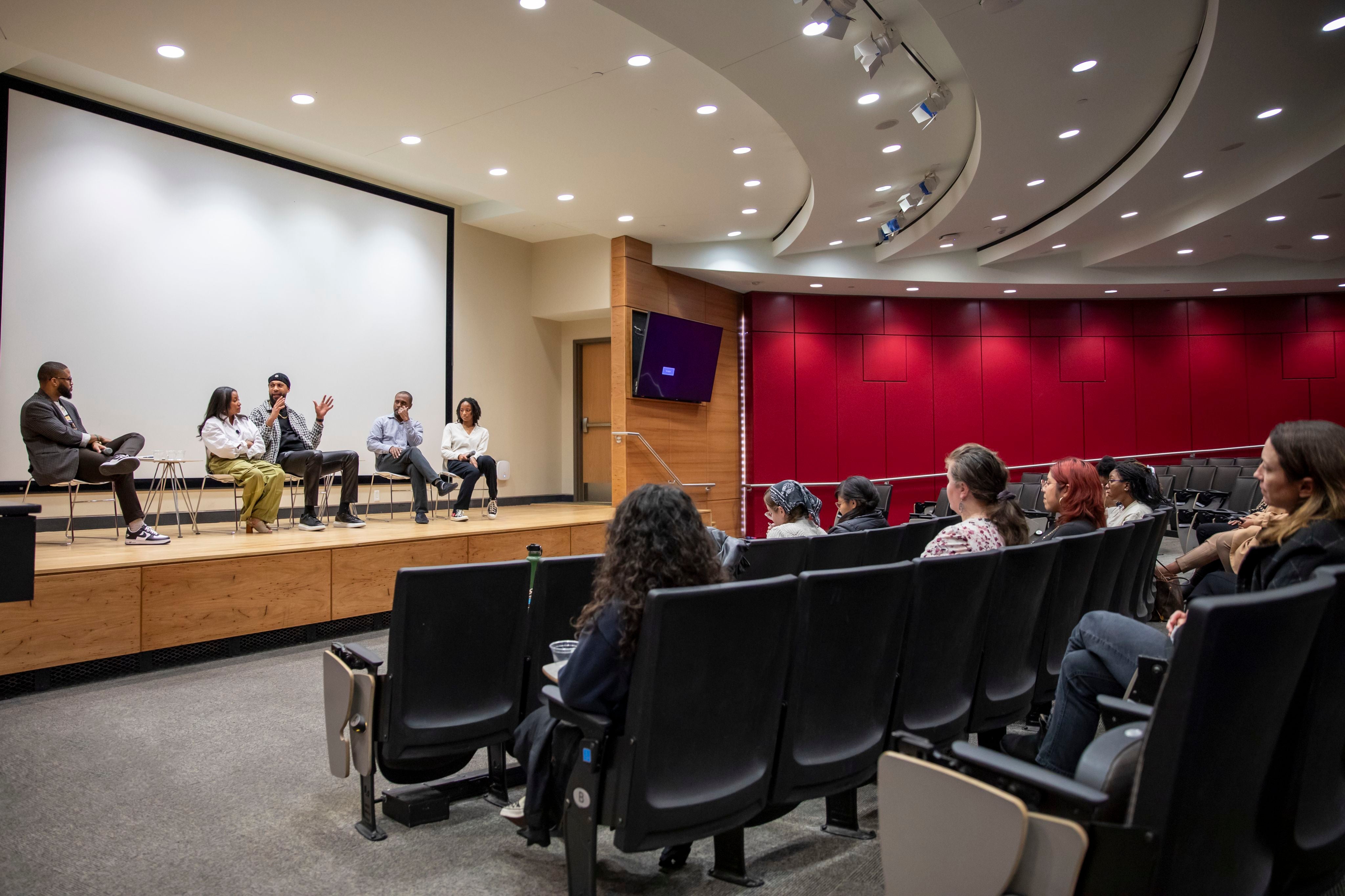
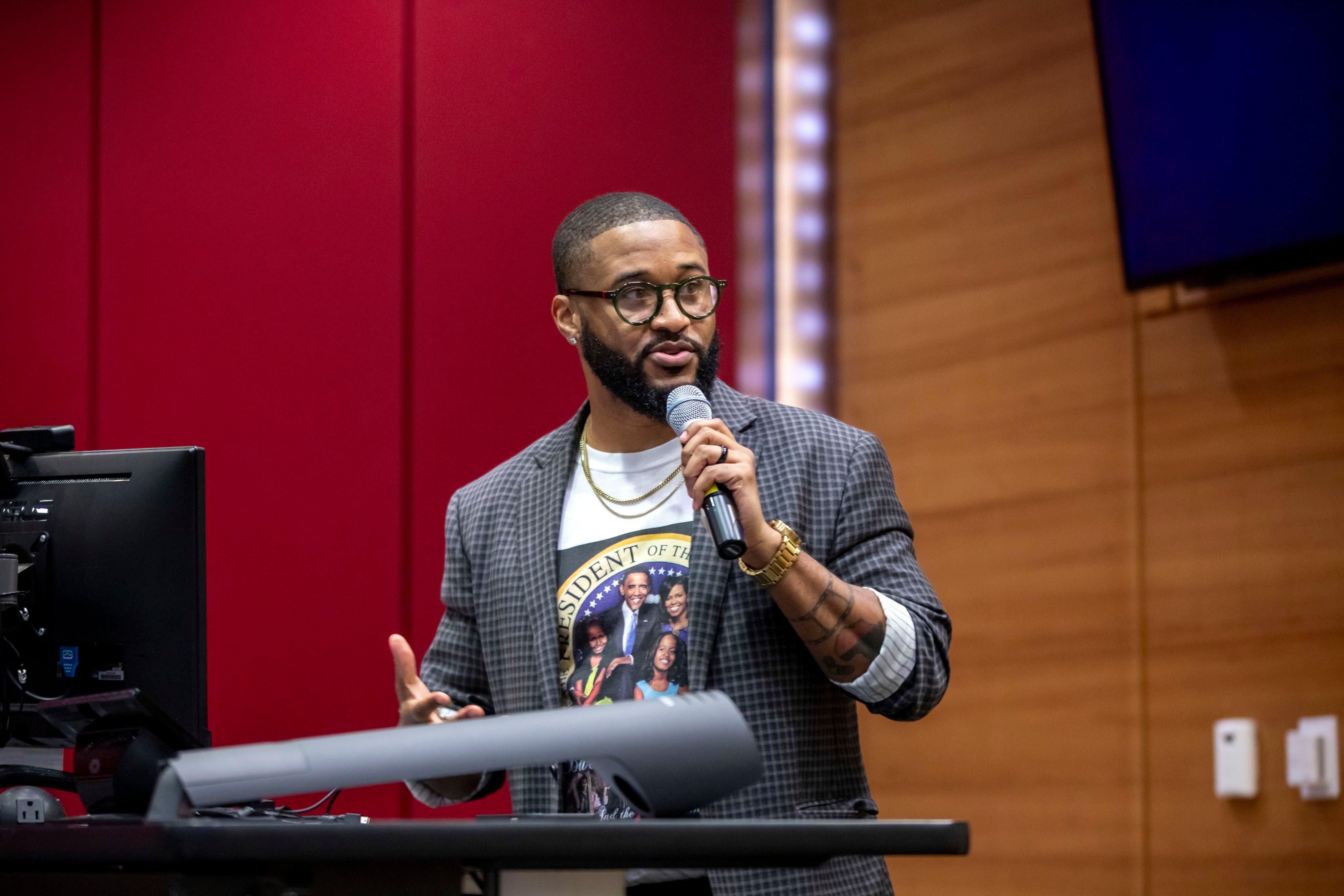
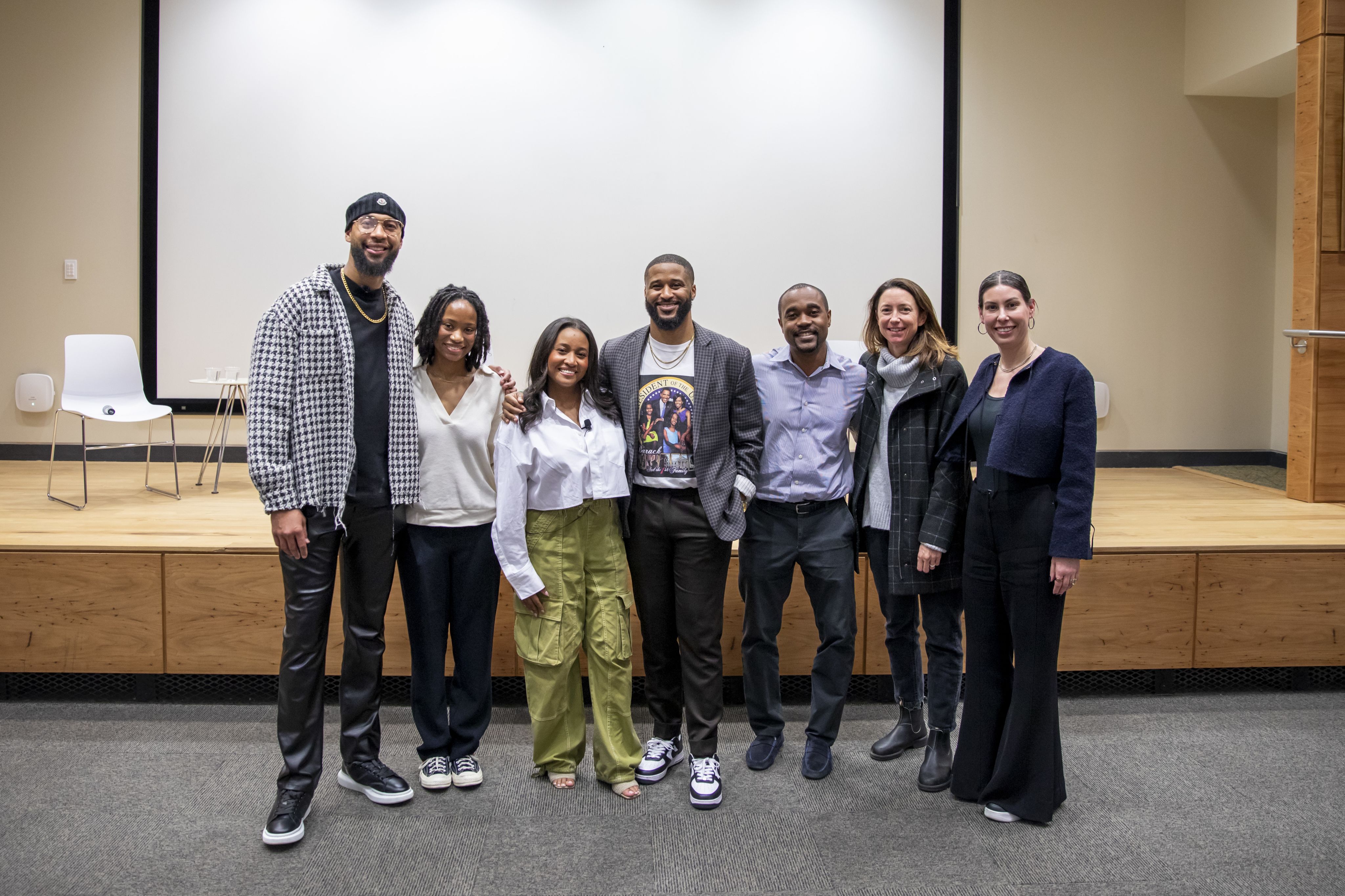
Photos by Leticia Rincon
Photos by Leticia Rincon
To celebrate Black History Month, Moody College of Communication hosted a screening of the second episode of the series and a discussion with Lewis, Faison, Dell Medical assistant professor Dr. Adewole Adamson and radio-television-film senior and Black Lens Co-President Jersey Robinson, moderated by RTF assistant professor Adrien Sebro.
Networks took a while to pick up the docuseries, which was originally pitched as a 90-minute feature. The idea was kicked around by executives before NBCUniversal took a chance and greenlighted the project.
“No one really understood it because people are used to Black stories being negative and having some kind of struggle with them,” Lewis said. “They’re very much like, ‘Why would you even need this kind of imagery?’”
After the series premiere, Netflix, who had originally turned down the project, approached Faison to add it to their platform, two years after they had started pitching.
The series, which consists of three 45-minute episodes, explores the relationship and art between Black people and makeup, hair and skin care. The idea of featuring makeup and hair came naturally to Lewis and Faison.
“Hair is the beauty of Black people,” Lewis said. “Our hair is so diverse. Our hair is so fascinating and so unique; it is our crown for a reason. No matter how you dress or do your makeup, your hair is a big part of the discussion.”
Figuring out how to approach skin care, on the other hand, took a little more work.
The episode investigates how new the interest in skin care is for many Black people. For generations, the documentary explains, skin care rituals involved little else besides water and Vaseline. All the panelists shared memories of being slathered in Vaseline during winter and lamenting how far into adulthood they were before they ventured into a more intensive routine.
“Skin care is to the Black community very much like therapy is,” Faison said. “I think for us it’s very new.”
The skin care discussions surrounding Black people are often littered with misconceptions. Beauty editors, influencers and brand founders spent ample time throughout the episode dispelling the idea that “Black don’t crack” and begging their audience to wear sunscreen.
Conditions such as eczema and skin cancer are recognized and treated less frequently with Black people, in part because there are so few Black dermatologists. Only 3% of dermatologists in the U.S. are Black — a group often dubbed “unicorns.”
Adamson, one of the few Black dermatologists in Austin, said that besides a fascination with the immune system, he became a dermatologist because he thought the field needed more people like him. He said his consultations with Black patients can have a different energy.
“Usually, they have a huge smile when I walk in,” Adamson said. “I would say it’s that kind of closeness that patients feel about you in the room and this idea that I also care deeply, deeply about disorders that disproportionately affect people with darker skin types and have appreciation for hair.”
“Usually, they have a huge smile when I walk in,” Adamson said. “I would say it’s that kind of closeness that patients feel about you in the room and this idea that I also care deeply, deeply about disorders that disproportionately affect people with darker skin types and have appreciation for hair.”
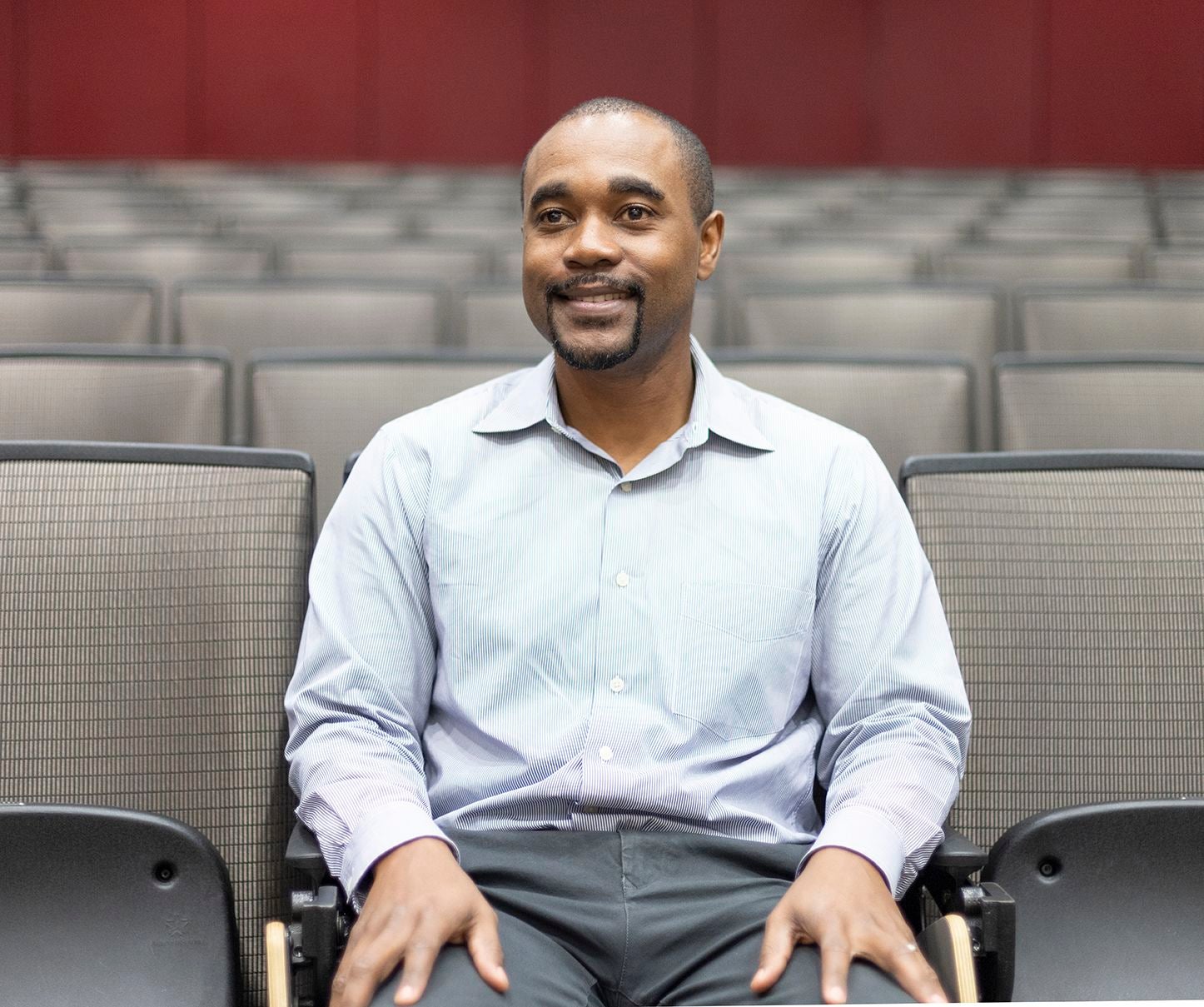
Although brands have been slower to cater to Black people’s needs, skin care can be taken too far, Adamson said. For Black women, it’s often treated as a luxury or comes with an expectation of a 10-step routine filled with the latest products. That’s part of the reason having a Black dermatologist is so important.
“Skin is like an immune system,” Lewis said. “It’s not something that can really dibble and dabble with trends.”
Faison said that telling this story took a lot of work. While pitching, he and Lewis came across executive after executive who didn’t quite understand why they wanted to tell this story, why they wanted to feel celebrated on screen. After an uphill battle, Faison said they’re making progress. In cities across the country, he’s seeing conversations about these issues and the work that needs to be done.
“It’s been great to see the community that has formed as a result of this project,” Faison said. “People feel seen and educated.”
After trending for five weeks on Netflix and fighting for their chance to be greenlighted for another season, Faison and Lewis are working to cover the Black fashion effect.
“For us, it’s really about showing the influence of Black people in pop culture, period, and also speaking that we’ve always been there,” Lewis said. “Especially when it comes to fashion spaces, Black people do so much, and the clothes are not made for us. And yet, here we are, just making our mark continuously.”
What does beauty mean to you?
Last month’s panelists share their thoughts on true beauty.
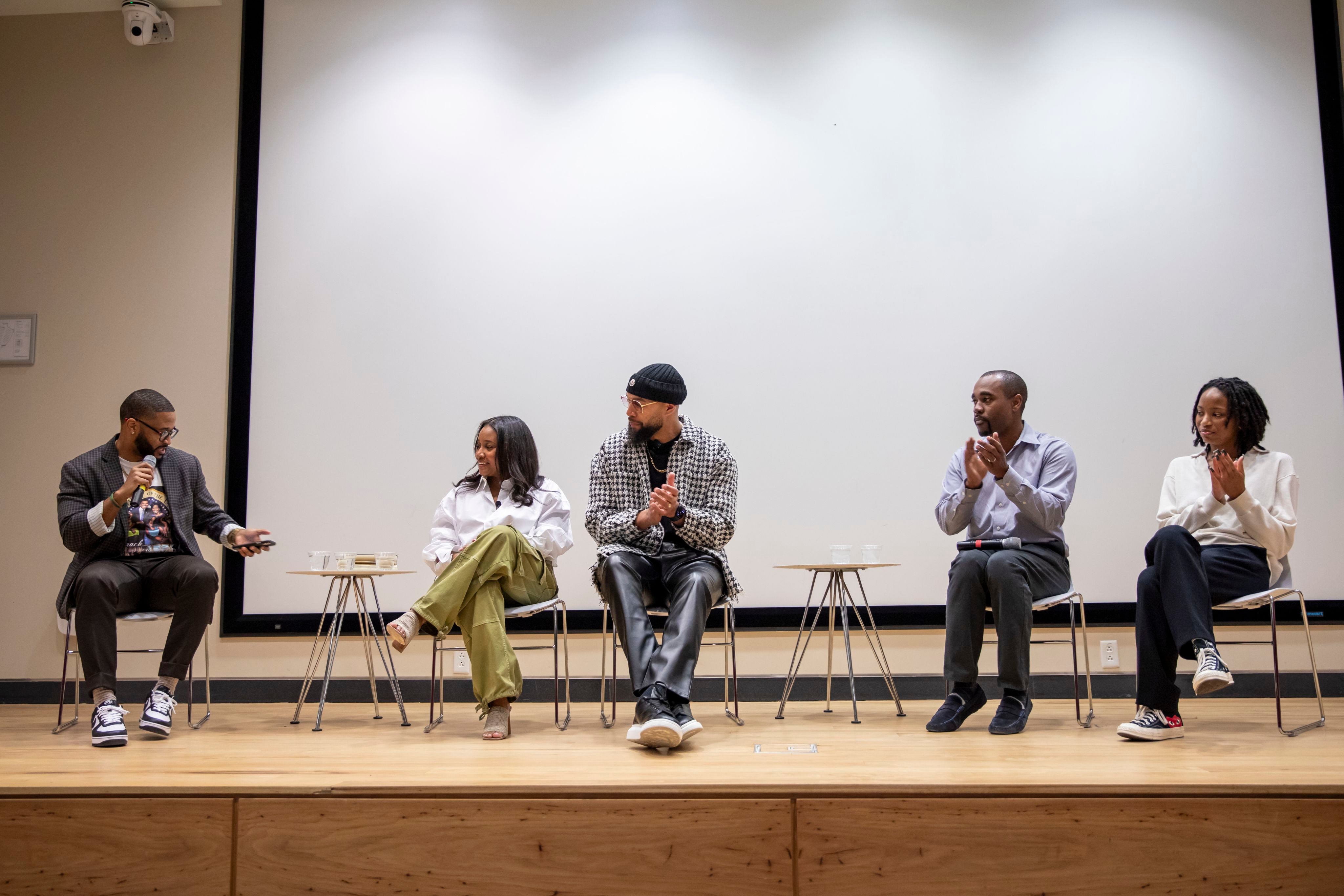
“I feel like beauty can be defined in many ways. I feel like a big way that it is viewed today is as an industry or like a commodity. You have to pay to be beautiful, but then if you are beautiful, that’s a currency that you can use. I think what it really is is internal.”
Jersey Robinson/Co-President of Black Lens

“As somebody that looks at skin all the time, just skin health or healthy skin, and if people feel comfortable in the skin that they're in. That to me is beauty, and when I see my patients, I try my best every time to compliment them on the skin that they’re taking care of.”
Dr. Ade Adamson, Dell Medical School professor and dermatologist
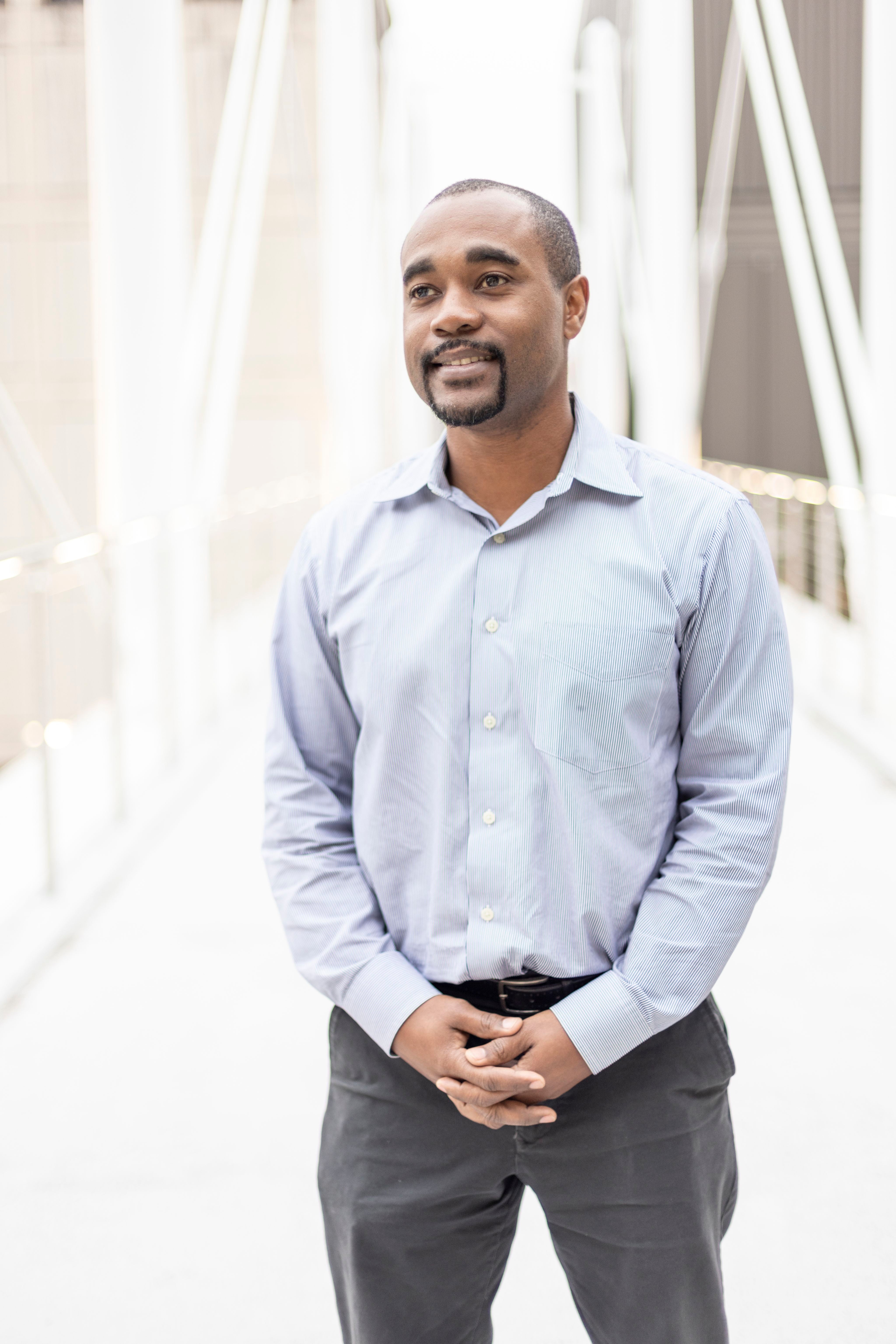
“I think beauty is so many things, but the biggest thing about beauty is not even something physical for me. It’s just a way of being, a way of feeling. Because depending on who you ask, you’ll get a different definition of what beauty is. But to me, it’s how you feel, how you carry yourself and how you treat others. How you treat yourself, most importantly, is beauty for me.”
C.J. Faison, executive producer and founder of FaceForward
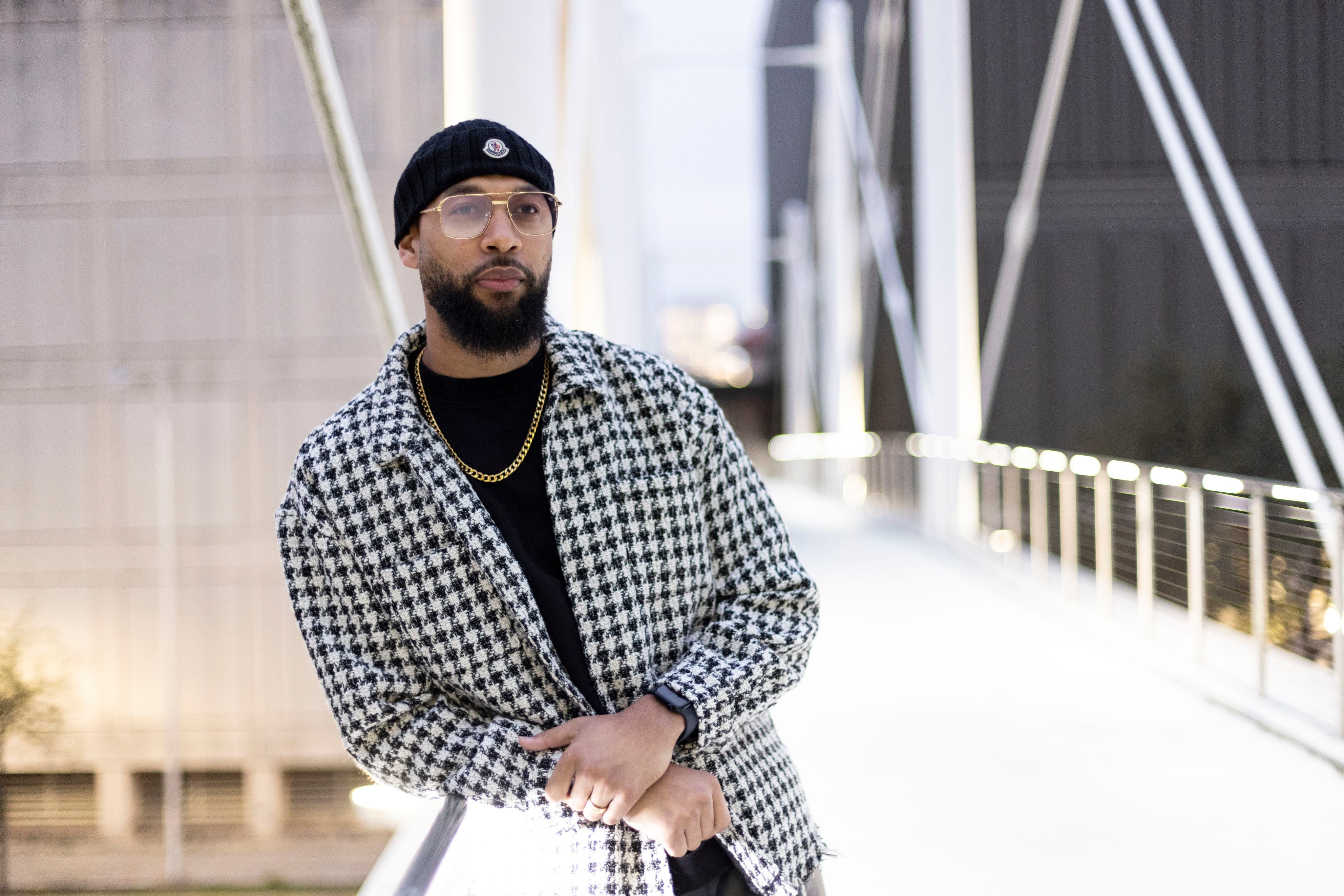
“For me, beauty has a lot to do with confidence. Because I think when you feel beautiful, you actually treat yourself beautiful, which then in turn makes people look at you like you’re beautiful. That’s why it can look like so many different things.
Andrea Lewis, actress and creator of "The Black Beauty Effect"
